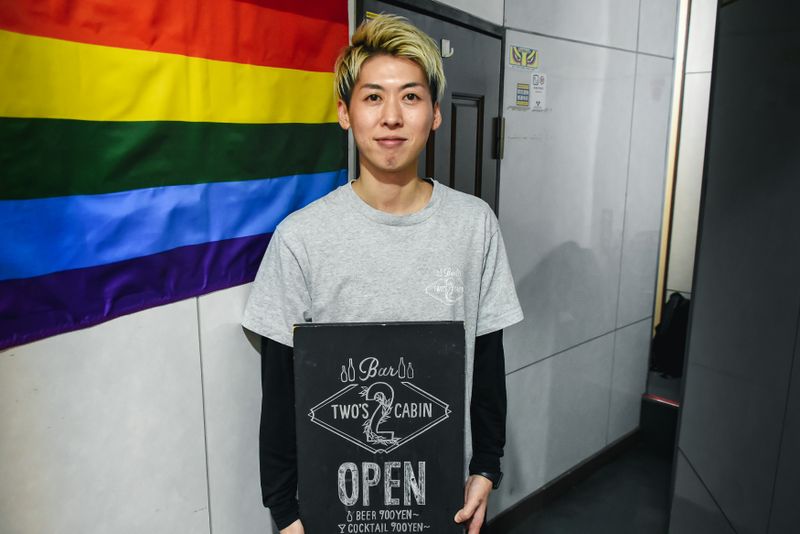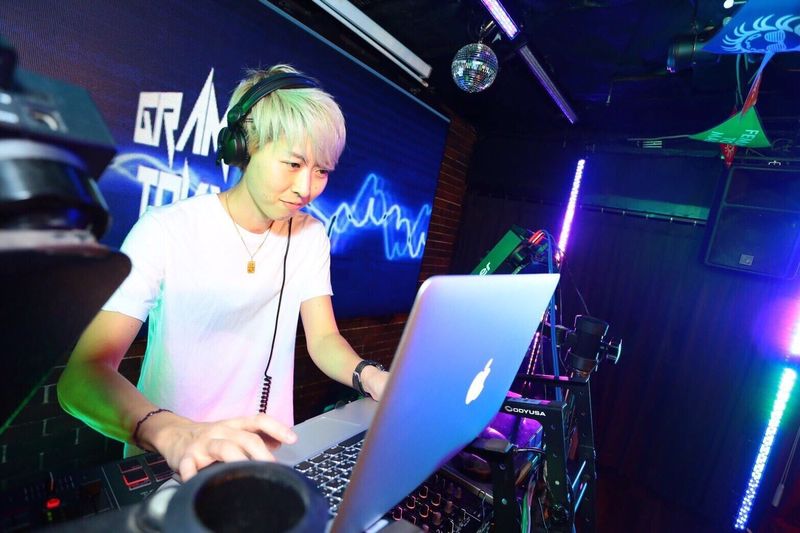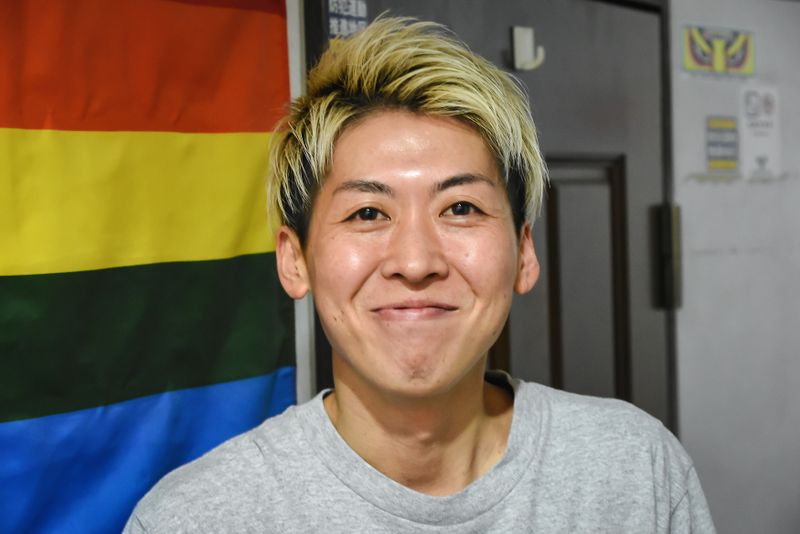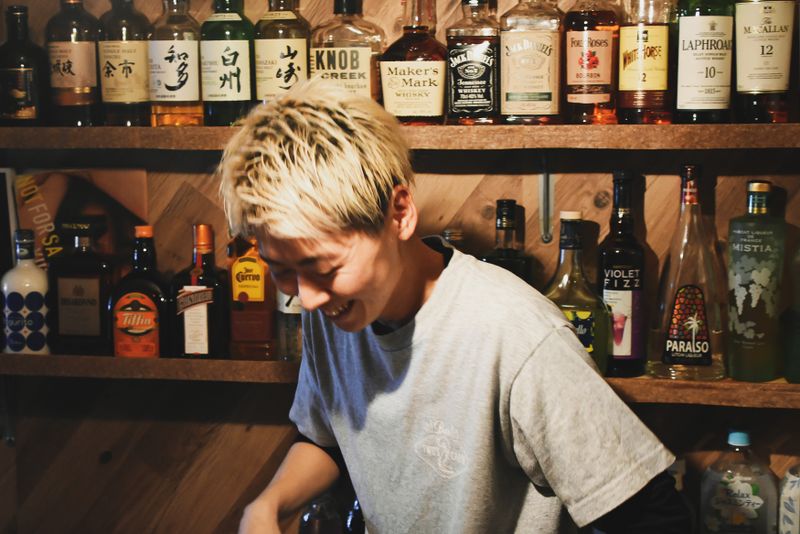Jun 16, 2020
Finding identity in FTM, Tokyo bar owner helps others take pride in theirs

With considerations of lifestyle choice, identity and past thrust to the fore in recent weeks it can be a reaffirming experience to come face-to-face with someone apparently so at peace with and positive about their own.
Tokyo bar-owner, DJ and family man Masaki, who in his late twenties completed the physical transition from female to male (FTM), has through this sense of identity and accompanying lifestyle choice learned to feel more alive, and is using his experience to support others in the process.
Watch our interview with Masaki on the City-Cost YouTube channel:
Where many of us might have put off the deeper questions surrounding identity until adulthood, Masaki began wrestling with them as a child growing up female.
“During the second grade of elementary school I started to like girls. I became interested in girls.
Since then I started to think that I was a little strange. I didn’t know who I was and that worried me for a long time,” Masaki told us during an interview in March this year at his FTM bar in Shinjuku.
“When I was 16 years old I realized that I liked women, as if I was a man.”
It wasn’t until high school that Masaki felt able to come out, telling his first girlfriend before eventually telling his parents, whom it took 10 years to come to terms with Masaki’s real identity.
“Initially, the biggest thing was to ask (my mother), "Why don't you understand?"” Masaki told us matter of factly.
“At the same time though, I thought, well, perhaps it’s natural that they aren’t able to come to terms with it. I was also aware that what I was saying was pretty extraordinary. Parents are going to be surprised if all of a sudden their daughter tells them that they want to be a man, to have surgery to change their gender.”
As others wrestled with his identity, Masaki himself began to undertake the physical transformation, beginning hormone treatment at the age of 22 before having around two years of counseling prior to surgery.
“I think the counseling was good for me,” said Masaki as he explained that the length of counseling in Japan varies from person to person.
“I went once or twice a month and at the end of every single session I was asked the same question, “Do you want to live as a man?” every time for two years.
“I wrote out my history, describing all those times when I had felt uncomfortable (about my gender). The doctor and I broke down each sentence and talked about it in detail. I was really able to take my time and to take a good look at myself.”
After undergoing surgery in Japan and Thailand, it was at the age of 27 that Masaki realized, physically and legally, the completion of his gender change, becoming registered as “male” on his family register here in Japan.
“I felt like, ‘Finally it’s done!’” he said. “On the other hand though, I also had this feeling of, ‘Is that it?’ It was almost like I had become burned out. I started to wonder, ‘What should I do now?’ ‘What’s the next challenge?’”
The salaryman office life that Masaki had been living during the gender-change process was the first thing to go. Instead, he and others who had undergone the FTM gender change founded FTM Party Grammy Tokyo, which started out organizing club nights for those who identified as FTM and lesbian, gay, bisexual and transgender (LGBT).

(Masaki on DJ duties at an FTM Party Grammy Tokyo event)
Now in its 8th year, “Grammy Tokyo” club nights, which Masaki describes as “mix parties,” welcome people of many identities, not limited to FTM, or LGBT.
“Through Grammy Tokyo I’ve been able to encourage others like myself to enjoy life and that in turn has helped me. It gave me this feeling of, ‘I’m FTM but I can support other people,’ and gradually I’ve felt more and more alive.”
A talk-show event organized by Grammy Tokyo during which members shared their differing experiences of pursuing gender change was attended by people from across Japan, many of whom were struggling to come out in their real identity, according to Masaki.
“We felt that we could do more than just hold club nights,” said Masaki of the event. “We (Grammy Tokyo) felt that if we took action, we could help to inform others like ourselves as well as society at large. We want to do things to help create a society in which it’s easier for FTM people to thrive. The talk show was a part of that.”
Masaki, as a legally registered male, has been able to marry his girlfriend, like any other man in Japan. The couple has also been able to start a family and are now the proud parents to two children.
Creating a society in Japan in which FTM and sexual minorities can thrive though, isn’t without its challenges.
A recent survey on policies aimed at protecting the rights of sexual minorities in the workplace conducted by the Ministry of Health, Labor and Welfare targeted 10,000 firms in Japan, receiving responses from 2,388. Of the respondents, only around 10 percent said they have such policies in place, with over 30 percent saying that they had no plans in place to rectify this, according to Kyodo News Plus.
Of the firms surveyed, larger firms appeared to fare better with 41.3 percent of companies with 1,000 or more employees having implemented measures, including the provision of education on LGBT awareness and internal counseling made available to staff.
Outside of the workplace, two “love hotels” in western Japan came under fire in May this year after it was revealed they had refused to rent rooms to a gay couple. Since 2018 under Japanese law hotels cannot refuse guests on the basis of sexual orientation or gender identity.
In November last year Spartacus International Gay Guide, a popular medium for gay travelers, released its annual Gay Travel Index for 2020. The index attempts to find a balance between measuring the rights of the local LGBTIQ -- IQ - intersex and queer/questioning -- community and considering the demands of the "queer," according to the guide.
Out of 202 countries and regions covered by the index -- which considers factors such as transgender rights, LGBT marketing and anti-discrimination legislation -- Japan was ranked at joint 66 along with countries that include China, Serbia and Angola.
Despite the work still to be done though, Masaki believes that Japan is heading in the right direction in regards to support for sexual minorities and those questioning their gender.
“Compared to years ago, Japan is in a much better era, I think.”
“Same-sex partnership certificates, they don’t yet carry the same recognition (as marriage) but I hope that eventually they will,” said Masaki when asked about the systems of recognition for LGBT couples that some cities across Japan have been implementing in recent years.
“I think these partnership certificates are a step towards this (marriage) so I really feel like the current era is heading in a good direction.”

(Outside Bar 2's Cabin in Shinjuku, Tokyo)
Such changes as Japan is going through might also be witnessed at a street level. Masaki remembers when Grammy Tokyo was invited five years ago to join the capital’s annual Tokyo Rainbow Pride parade. The group has joined the parade through the streets of Shibuya and Harajuku every year since and has seen the procession grow from just five or six floats to over 40 in that short space of time.
Tokyo, and Japan, also has what Masaki hopes can become a hub for information sharing regarding matters FTM and LGBT, as well as a place where like minded souls can meet -- his bar, “Bar 2’s Cabin” in Shinjuku’s 3-chome district.

(Masaki at work in his bar in Shinjuku's 3-chome district)
Masaki opened Bar 2’s Cabin on the encouragement of his wife. The cozy space (which Masaki felt resembles a rural “cabin” inside) welcomes people from a spectrum of sexual preferences and gender identities, “lesbian, bisexual, x-gender (third gender), pansexual. Of course, straight people come here, too.”
Foreigners find their way here also, often drawn by the rainbow flag hanging outside, according to Masaki.
Despite its location near Shinjuku's famous LGBT hub of 2-chome, Masaki recognizes his bar as something of a rarity.
“I have an FTM bar, but it seems that there aren't many FTM bars overseas. Most of them are gay bars or bars where people of mixed genders work. I’ve often heard foreigners here say that FTM bars are rare or unique.”
“Actually, there are not many bars like this in Japan either. People from around Japan as well as from countries around the world get together here, so I also recommend coming here!”
As a child Masaki struggled for some time with his own identity before feeling secure enough to be able to come out to his family and others. Well over a decade later, and as a member of the community helping others to establish their own identities, he is looking toward coming out once again, this time with a different sense of trepidation, to his two children as a young parent.
“My wife and I talk together about how to raise our children. We are thinking that at an early age we will tell them who their parents are, that I am FTM and used to be a woman. They have already had the chance to be around other people who are FTM and I want them to be open minded, to be able to accept a variety of ideas and lifestyles,” said Masaki.
“I don’t think there is any one correct answer when it comes to how to raise children. So, if I make mistakes as an FTM parent, well, so will other parents make their own mistakes. For now though, all we can do is raise our children with all our love and effort.”
Matters of identity and acceptance, of lifestyle choices and lifestyle demands are something that global society at large has found itself reconsidering in the first half of 2020. As with Masaki raising his young family though, perhaps the right choices moving forward will be many and varied, and it’s likely that mistakes will be made.
If the same sense of love and effort is shared though, maybe that will keep things headed in a positive direction.
Related videos on the City-Cost Japan YouTube channel:
Same-sex marriage in Japan: Local Opinion
Bar 2's Cabin homepage: http://bar2s-cabin.tokyo/index.html
*Editor's note: At the time of publication Tokyo had entered its third phase of easing social and economic restrictions following the end of the coronavirus emergency. For details about the opening schedule of Masaki's bar please visit the homepage above and links to the bar's social media accounts within.



1 Comment
WenceslausHybiscus
on Feb 7
Great story. Who is the biological father of your two children? Is it you? Good look to you and your bar.